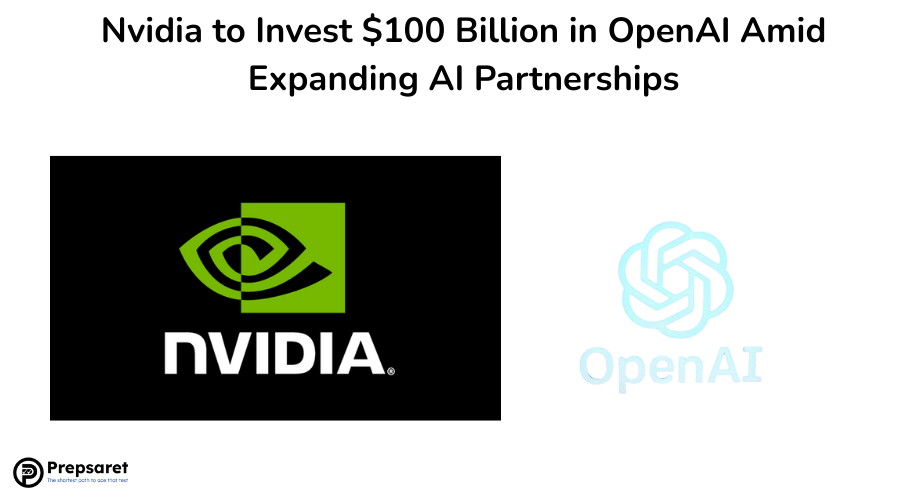Nvidia announced plans on Monday to pour up to $100 billion into OpenAI while also supplying the company with its cutting-edge data center chips. The deal highlights the deepening ties between two of the most prominent players in the global race to dominate artificial intelligence.
The partnership gives Nvidia a financial foothold in OpenAI, a company that already relies heavily on its hardware, while securing OpenAI the funds and computing capacity it needs to maintain its edge in the fast-moving AI sector.
Industry rivals may see the move as a threat to fair competition, given the scale of the collaboration.
Related story: Abu Dhabi and Nvidia Open First AI Research Center in the Middle East
Structure of the Deal
According to a source close to OpenAI, the agreement will unfold in two parts: Nvidia will buy non-voting shares in the AI company, and OpenAI will use that capital to purchase Nvidia chips.
“Everything starts with compute,” OpenAI CEO Sam Altman said. “Compute infrastructure will be the basis for the economy of the future, and we will utilize what we’re building with Nvidia to both create new AI breakthroughs and empower people and businesses with them at scale.”
Both firms have signed a letter of intent that outlines plans for OpenAI to deploy at least 10 gigawatts of Nvidia systems—enough to power more than eight million U.S. households. Final terms are expected in the coming weeks.
The announcement sent Nvidia shares up 4.4% to a new record, while Oracle (ORCL.N) rose 6%. Oracle is collaborating with OpenAI, Microsoft, and SoftBank on Stargate, a $500 billion project aimed at building massive AI data centers worldwide.
Under the agreement, Nvidia’s first investment will total $10 billion, with chip deliveries starting in late 2026. The initial gigawatt of computing power will roll out on Nvidia’s upcoming Vera Rubin platform.
While analysts view the deal as a growth driver for Nvidia, some raised questions about the “circular” nature of the investment—where Nvidia’s cash could ultimately be funneled back into its own products.
OpenAI, meanwhile, continues to explore custom chip development with partners like Broadcom and Taiwan Semiconductor Manufacturing Co, signaling that the Nvidia partnership does not end its independent hardware ambitions.
Industry Implications
This pact adds to a string of high-profile alliances. Microsoft has been investing in OpenAI since 2019, and Nvidia recently revealed a new collaboration with Intel. Nvidia also participated in a $6.6 billion funding round for OpenAI in 2024.
Regulators may scrutinize the massive commitment, especially after the Justice Department and Federal Trade Commission agreed last year to monitor the influence of Nvidia, Microsoft, and OpenAI on the AI market.
Still, the Trump administration has so far adopted a more business-friendly stance on regulation.
Antitrust lawyer Andre Barlow warned the partnership could “potentially lock in Nvidia’s chip monopoly with OpenAI’s software lead,” making it harder for rivals like AMD or competing AI developers to scale.
Read next: Nvidia Invests $5 billion in Intel, Pairing Chip Expertise to Revive Struggling Rival

